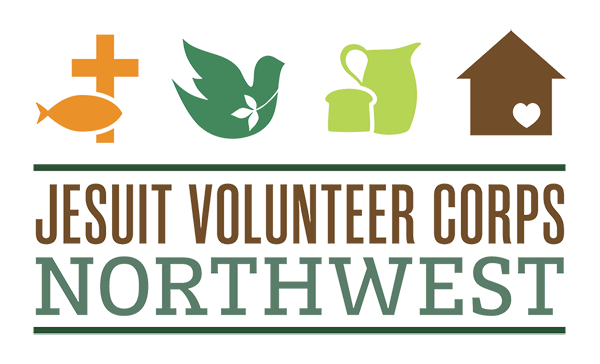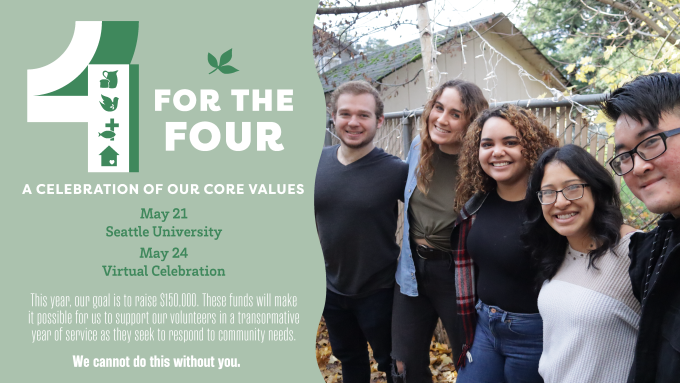Anna Osborn is a second year JVC Northwest AmeriCorps member inspiring others to become environmental stewards. Here she shares how her service this year is making a green impact within the Columbia Gorge community in and around Hood River, OR.
I serve at the Gorge Grown Food Network as well as the Hood River Middle School as the Permaculture and Farmers’ Market Outreach Assistant. At the Hood River Middle School, I assist groups of students with different projects around the classroom, garden, and greenhouse. At Gorge Grown, my main focus is food access. For example, I am helping develop the Mercado del Valle, a new farmers’ market being created to provide access to fresh, local, healthy food in the low-income, Hispanic community of Hood River, and celebrate the cultural diversity of this area. My projects also include the Tasting Tables, which is a program that exposes elementary school students to different local fruits and vegetables.
I am also developing the School Garden Network, through which I coordinated the 2nd annual “Every Day is Earth Day” School Garden Symposium on April 22, 2014. I was fortunate enough to spend this Earth Day with over 100 middle school and high school students at the event. The theme for this year’s symposium was Holistic-Farming Approaches to School Gardening and was held at Columbia High School in White Salmon, WA.
The goal of this event was to create a space for middle and high school-aged students in the Columbia River Gorge to share in their experiences with incorporating school gardening into STEM (Science Technology Engineering and Mathematics) curriculum, as well as learn from the experiences of other students in the Gorge. Through events like the School Garden Symposium, the hope is to create a community of support for school garden programs while providing opportunities for networking and expansion of the School Garden Network of the Gorge.
As an introduction to the day, students heard a presentation by the Yakima Nations Fisheries Program and their efforts to work with students in re-vegetation projects on the White Salmon River. Students then took part in hands-on experiential learning activities with plant propagation, composting cafeteria scraps, sheep sheering, spinning wool, and planting a native pollinator garden. In the afternoon, school groups presented on their own school garden programs in a Presentation Fair.
Seven schools were in attendance at the Symposium, which included roughly 100 students, and 20 teachers, garden coordinators, and chaperones. Other community organizations also participated such as Master Gardeners, Yakima Nations Fisheries Program, the Department of Natural Resources, the Cascade Mountain School, and local nurseries.
School gardens engage students’ multiple intelligences, and students are able to incorporate many different subjects like math, science, and literature into their experience in the garden. Gardening provides them the opportunity to have ownership in a project, and to connect with the natural world. At The School Garden Symposium, it was really moving to see how excited students were to get their hands in the dirt, and how enthusiastic they were to learn about creating their own gardens. There is something really special about learning through gardening, and I am fortunate to see it every day.







